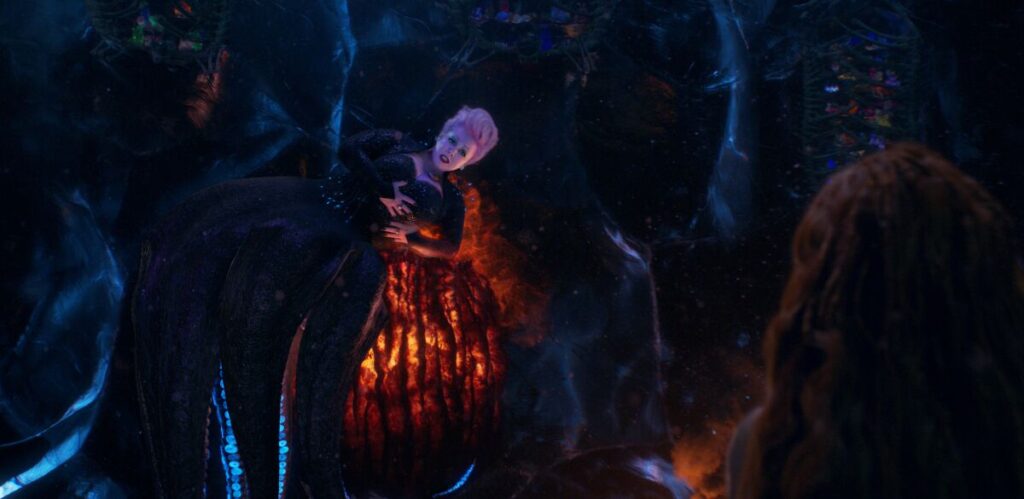Melissa McCarthy in “The Little Mermaid.”
(Disney)
The animated Ursula, voiced by Pat Carroll, “is not only flashy and flamboyant but also understands the power of transformation and performance — as well as ‘body language’ and a woman’s voice,” observed Times staff writer Tracy Brown. “She’s funny, oozes confidence and, in her own way, plots against the traditions of the establishment. She’s easily one of the most charismatic characters in the movie, even if she is evil.”
Inspired by the famed drag performer Divine and the Bertolt Brecht-Kurt Weill style of cabaret, Menken and Ashman wrote “Poor Unfortunate Souls” as part seduction, part social commentary and part scolding of Ariel to give up her voice for three days on land. “It’s a celebration of [Ursula’s] slyness, her style, and how crafty and deliciously manipulative she is,” said Menken. “It’s good to be afraid of her, but she’s also a villain Howard definitely had a lot of respect for.”
In the new version, the orchestra accented Ursula’s verses with a resonant cimbalom, spooky woodwind chords and a booming church organ. “We play it soft and mysterious when she’s just trying to draw Ariel in, and then, by the time she gets to the big spell, it’s like all hell breaks loose,” said Higham of the scaled-up arrangement. Meanwhile, Melissa McCarthy “gave us that full range, from humorous to scary to deeply hurt and out for revenge,” said Marshall. “She’s not a singer, but she was fearless and she just went for the big notes.”
The live-action film sees Ursula traversing her dark, fire-laden lair with the same strong, smooth and sometimes sudden movements of real-life cephalopods. “We wanted her to have that slithery sexiness, but also the intimidating, scary part of an octopus, where you don’t know when she’s gonna pop in front of you, or where those tentacles are going to be next,” said DeLuca of McCarthy, who rehearsed and filmed the sequence with each of her tentacles connected to a stunt performer. “They had to be an extension of her but also like they each had a life of their own, going for potions or wrapping around Ariel’s neck.”
The latter verse, in which Ursula explains men’s preference for quieter women, has been swapped for dialogue in which Ursula outlines Ariel’s underwater fate. “Ursula repeats what Ariel’s father said about never leaving again, and that realization of how trapped she is pushes her toward the deal,” said Marshall. “That felt better for the shape of this movie. That extra section of how women don’t need to speak and all that stuff — we thought, ‘You know what? We don’t need it.’”

